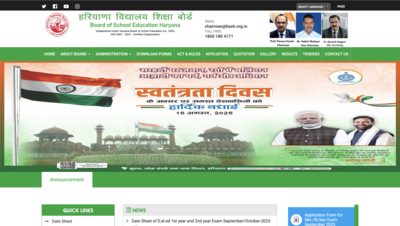6 proven scientific strategies to sharpen memory and excel academically

Memory is far more than a mental storage system; it is the engine of learning itself. Academic performance is not merely a reflection of intelligence but also of how efficiently the brain encodes, consolidates, and recalls information. Cognitive research demonstrates that memory is highly adaptable, responding to targeted interventions that reinforce neural connections. By understanding and practicing these techniques, students can cultivate sharper memory, boost academic performance, and foster a mindset geared toward lifelong learning.
Spaced repetition : Learning in intervals
Spaced repetition is one of the most powerful tools for long-term memory enhancement. Studies in cognitive psychology indicate that revisiting material at progressively spaced intervals strengthens neural pathways, making recall more reliable. Rather than cramming, students should break study material into manageable segments and schedule repeated reviews after increasing intervals, such as after a day, three days, a week, and then a month. Tools like flashcards or digital apps can automate this process, ensuring that knowledge is reinforced over time and retained more effectively.
Active recall : Test yourself, don’t just read
Active recall involves retrieving information from memory rather than passively reviewing notes, and it has been shown to significantly enhance retention. The process strengthens synaptic connections each time a memory is consciously recalled. Students can implement this strategy by closing their textbooks and reciting key points aloud, attempting practice questions without referencing notes, or performing “brain dumps” where they write down everything remembered on a topic before reviewing what was missed. This method not only reinforces memory but also highlights gaps in understanding that can be addressed promptly.
Interleaving: Mix and match subjects
Interleaving, or alternating between subjects or problem types within study sessions, fosters cognitive flexibility and improves problem-solving abilities. Unlike blocked study, where one topic is studied exhaustively before moving on, interleaving challenges the brain to make connections across concepts, reducing overconfidence and enhancing mastery. For example, students might study algebra for 20 minutes, then switch to geometry, and finally review statistics. This method enhances long-term retention by teaching the brain to distinguish between similar yet distinct types of information.
Elaboration: Connect new knowledge with existing knowledge
Elaboration involves linking new information to existing knowledge, creating meaningful associations that enhance recall. Neuroscience suggests that the more connections a memory has in the brain, the more easily it can be accessed. Students can practice elaboration by explaining concepts in their own words, teaching peers, or using metaphors and analogies to connect unfamiliar ideas to familiar ones. Visual tools like mind maps further reinforce these associations, allowing complex topics to be structured in a way that promotes understanding and retention.
Nutrition and hydration: Fuel your brain
A well-nourished brain is far more efficient at learning and memory retention. Nutrients like omega-3 fatty acids support neural communication, while antioxidants protect against cognitive decline. Students should prioritize a balanced diet rich in fish, leafy greens, berries, and whole grains. Equally important is hydration; even mild dehydration can impair concentration and memory performance. By combining proper nutrition and adequate fluid intake, students provide their brains with the biochemical tools necessary for optimal learning and memory function.
Physical exercise: Move to improve memory
Physical activity is closely linked to cognitive health. Aerobic exercise increases blood flow and oxygen supply to the brain, supporting the growth of neurons in memory-critical areas such as the hippocampus. Regular movement also reduces stress and promotes mental clarity. Students can integrate physical activity into their routines through daily brisk walks, cycling, or short exercise breaks during study sessions. Even combining light activity with learning, like reviewing flashcards while walking, can enhance focus and retention.
Mindfulness and meditation: Train focused attention
Mindfulness and meditation enhance attention, reduce stress, and strengthen working memory. Neuroscientific studies reveal that even brief, consistent meditation improves cognitive control and memory performance. Students can dedicate 10–15 minutes daily to guided meditation or deep-breathing exercises. Practicing mindfulness while studying—by focusing entirely on one concept at a time and minimizing distractions—helps build sustained attention and improves the brain’s ability to encode and retrieve information efficiently.





